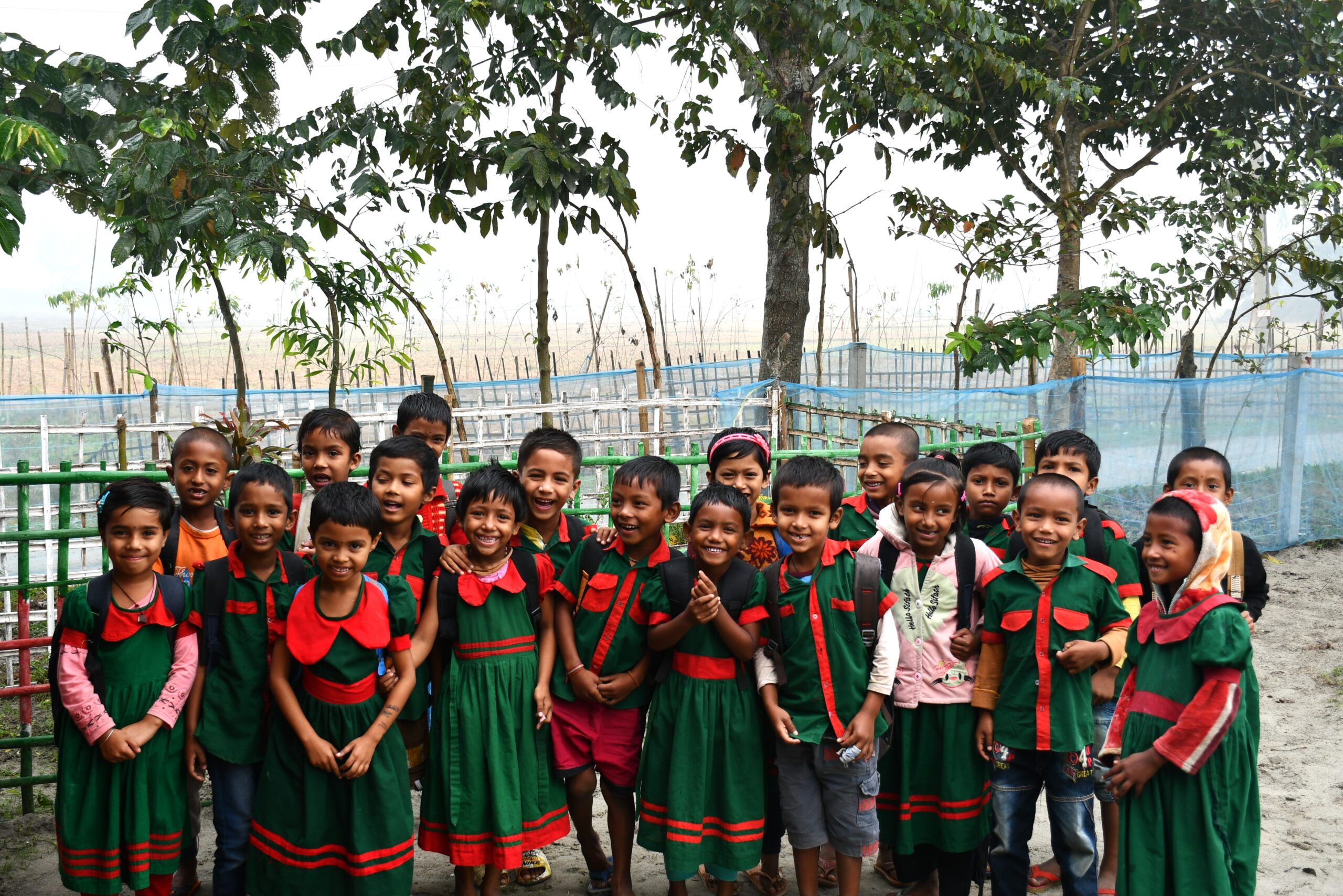Future-oriented and high-quality education in disaster-prone areas of Bangladesh (SWAPNO) – (Bangla)
Project Period: 1.3.2022 – 31.12.2025
Jointly Funded by: BMZ and NETZ Bangladesh
Implementing Partners: GUK, AT & JCF
Working area: Gaibandha, Kushtia, Nilphamari, Rangpur
Objective of the project: School staff, civil society, and public authorities are strengthened to provide quality primary education and to promote disaster preparedness in 4 districts of Bangladesh.
Background of the project:
The programme regions have low primary and secondary school completion rates by national standards. Human rights violations, including child marriages, the high poverty rate, and low level of education are mutually dependent. In particular, there are major problems here with regard to school access for all children and the quality of teaching, which for a long time has been treated as a secondary issue with a view to achieving quantitative targets. NETZ and AT have been cooperating in the education sector since 2008. Since then, AT’s education experts have made important contributions in the context of conceptual development, monitoring, and evaluation of several NETZ primary education programmes (funded by BMZ and the EU). An important focus was and is the (further) development of the concept of the Anandalok model schools and how experiences of working with these schools can be applied to other governmental and non-governmental pre-schools and primary schools. Anandalok Trust facilitated the establishment and operation of 34 Anandalok schools (pre-class to class v) in close cooperation with local communities and two renowned national NGOs with the close support of NETZ. Currently, Anandalok Trust is being operated directly with 102 staffs and supporting two national NGOs to run 34 Anandalok schools and 80 government primary schools to ensure quality pre-primary and primary education and to strengthen civil society and public authorities at local to national level to promote the Right to Education and disaster preparedness in Bangladesh. The Anandalok model schools funded under this programme have pioneered work in this regard and in the context of disaster risk reduction at the programme sites.
Outcomes of the project:
- 114 formal primary schools with integrated pre-schools provide high-quality education for children from marginalised groups. The children are prepared and supported to continue their education in secondary schools.
- Teachers and partner NGOs are strengthened to realise inclusive, equitable, and quality education and to strengthen the disaster preparedness of schools and communities
- Effective cooperation mechanisms between competent civil society groups and public authorities from local to national level exist for the promotion of evidence-based model approaches to foster inclusive, equitable and quality education and disaster preparedness


